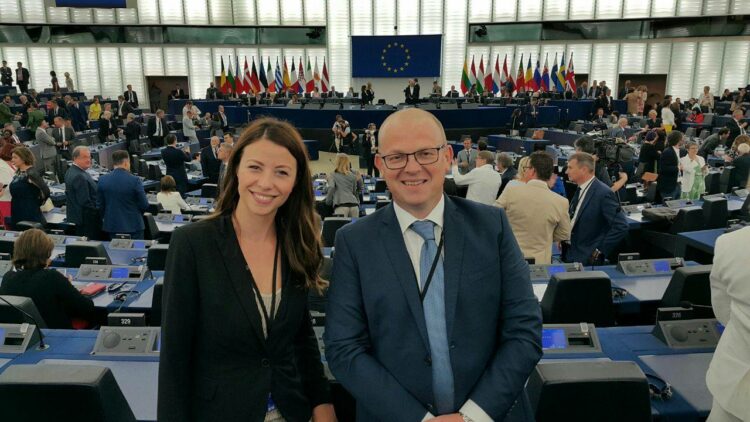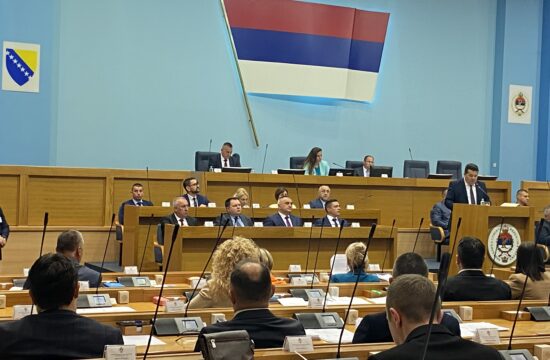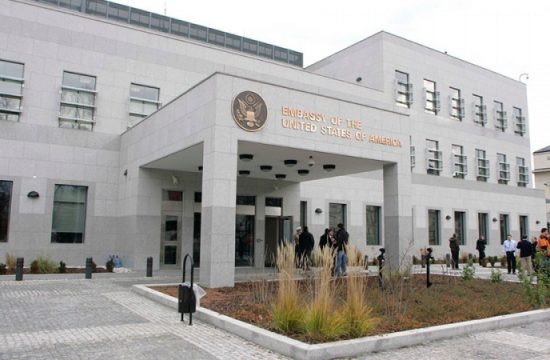
In a letter addressed to the President of the European Parliament, two Slovenian MEPs accused Slovania’s PM of abusing the 1995 Srebrenica Genocide for political purposes and called for for a “serious, EU-wide political discussion” on the matter.
As the commemoration of the 25th anniversary of the 1995 Srebrenica Genocide was ongoing in Bosnia on July 11, Slovenian PM, Janez Jansa, tweeted two statements which were met with widespread criticism.
In one of them, he stated that the tragedy would never have happened if “the Communist ideology had been eliminated from the territory of the former Yugoslavia” and if “post-war killings in Slovenia and elsewhere” would have been condemned.
In the other one, Jansa argued the Srebrenica Genocide would not have taken place if “the UN had condemned the communist genocides in the same way as the Holocaust.”
“As this did not happen, despite a large number of people killed, the doctrine of the JNA (Yugoslav National Army) that the enemy must be destroyed physically was revived during the breakup of Yugoslavia,” Jansa tweeted.
Slovenian MEPs Klemen Groselj and Irena Joveva quoted the tweets in their letter, pointing out that Jansa is a “close political ally of Hungarian Prime Minister Viktor Orban and Serbian President Aleksandar Vucic.”
“We find such statements in complete disregard of historical facts, to be a gross misinterpretation of the tragedy that unfolded in Srebrenica and a shameful political manipulation that offends the memory of thousands of men, women and children who lost their lives in one of the most tragic events in recent European history,” they wrote to EP President David Sassoli.
“It is undoubtable that all similar atrocities must be condemned in the strongest possible way, wherever and whenever they take place. But resorting to the political and ideological misuse and even abuse of historical facts is deeply intolerable.”
They argued that “the abuse and politicisation of the Srebrenica genocide for pure internal ideological and partisan purposes” by Jansa is only the “tip of the iceberg of a broader and extremely worrying trend of historical revisionism and relativism brought about by the alarming growth of far-right and populist forces across the European Union.”
“Such bold and unscrupulous attempts to manipulate and re-write history, especially by the highest political state representative, are sadly becoming the norm in Slovenia and parts of the EU, quickly spreading throughout the entire continent,” they wrote, adding that such actions “cannot and should not be ignored.”
“We, as elected representatives of the EU, have a duty to condemn these sorts of political statements and communication.”
“We therefore call upon you, honourable Mr President, to take the necessary political initiative and launch a serious, EU-wide political discussion on this matter. As we begin debates on the Future of Europe, acknowledging and respecting historical accuracy needs to be one of its crucial pillars,” they wrote.





